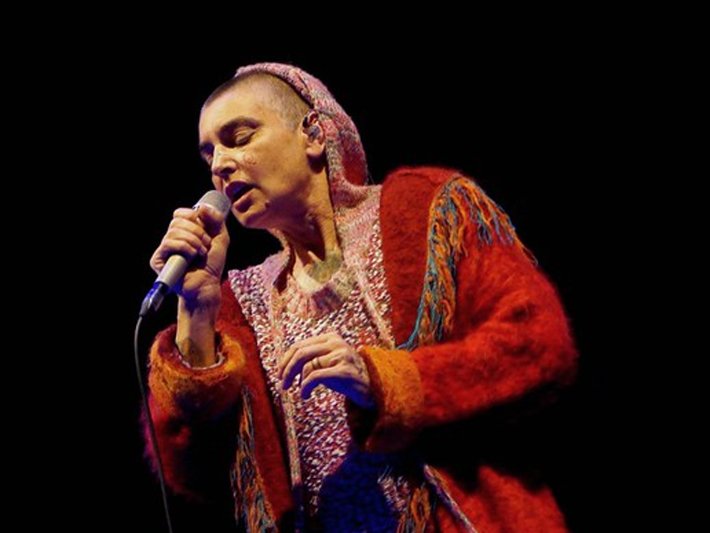Irish singer Sinéad O’Connor was born and raised Catholic and embraced Islam five years before her untimely death at 56 in July. But you wouldn’t know much about the singer’s religious identity from her obituaries in some of the world’s leading newspapers.

Hidden away in the 33rd paragraph of a New York Times article published July 26—the day the iconic singer-songwriter’s body was found at a private home in London—music and cultural reporters Ben Sisario and Joe Coscarelli briefly noted that she converted to Islam several years before her death and “started using the name Shuhada Sadaqat, though she continued to answer to O’Connor as well.”
“She was ordained a priest by a breakaway Catholic bishop in 1999, two decades before converting to Islam,” observed the Washington Post obituary writer Harrison Smith without giving any details of her conversion.
Since her death was announced, Muslim fans have questioned why media reports failed to note her religious beliefs in obituaries a July 27 article in Al Jazeera newspaper pointed out.
Although The Guardian editor Betsy Reed duly noted the singer’s religious conversion and adoption of a Muslim name, the British daily did so in what Anna Piela, a visiting scholar in religious studies and gender at Northwestern University, describes as “puzzlingly insensitive.”
“On her final concert tour, in 2019,” the Guardian obituary states, “she wore a hijab and abaya, but nothing else had changed—her voice still raised the hair on the back of the neck.”
“Why would her voice or her talent change after conversion?” asks Piela in the August 8 Religion News Service (RNS) article “Sinead O’Connor was a Rock Star and a Muslim. Why Did Obituaries Miss This?”
“Does the author imply that a Muslim woman would have less power as a performer?” asked Piela, author of the 2002 book, Wearing the Niqab: Muslim Women in the UK and the US. “This statement feeds into prevalent stereotypes of Muslim women as silent and oppressed.”
Mainstream media’s failure to highlight the singer’s Muslim faith implies Islam is perceived as not compatible with the entertainment industry, according to Piela.
“Few Muslim female singers reach global fame on this scale, so it is disappointing that so few in the media saw O’Connor’s brilliant life as a chance to challenge Islamophobia.”
The Church of Scientology International includes “Charter on Journalistic Ethics in Relation to Respect for Religion or Belief” as a chapter of What is Freedom of Religion? a booklet available to read or download free of charge from the Scientology Religious Freedom website.
_______________
From its beginnings, the Church of Scientology has recognized that freedom of religion is a fundamental human right. In a world where conflicts are often traceable to intolerance of others’ religious beliefs and practices, the Church has, for more than 50 years, made the preservation of religious liberty an overriding concern.
The Church publishes this blog to help create a better understanding of the freedom of religion and belief and provide news on religious freedom and issues affecting this freedom around the world.
The Founder of the Scientology religion is L. Ron Hubbard and Mr. David Miscavige is the religion’s ecclesiastical leader.
For more information, visit the Scientology website or Scientology Network.


